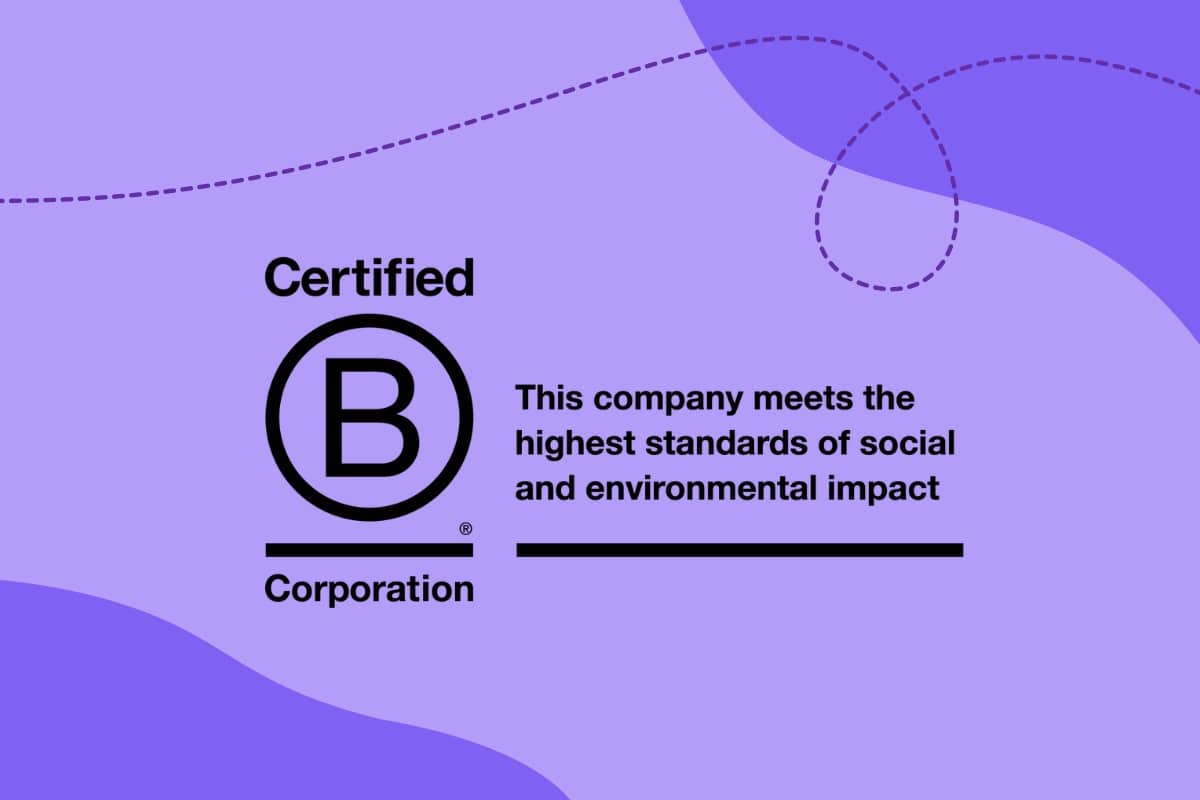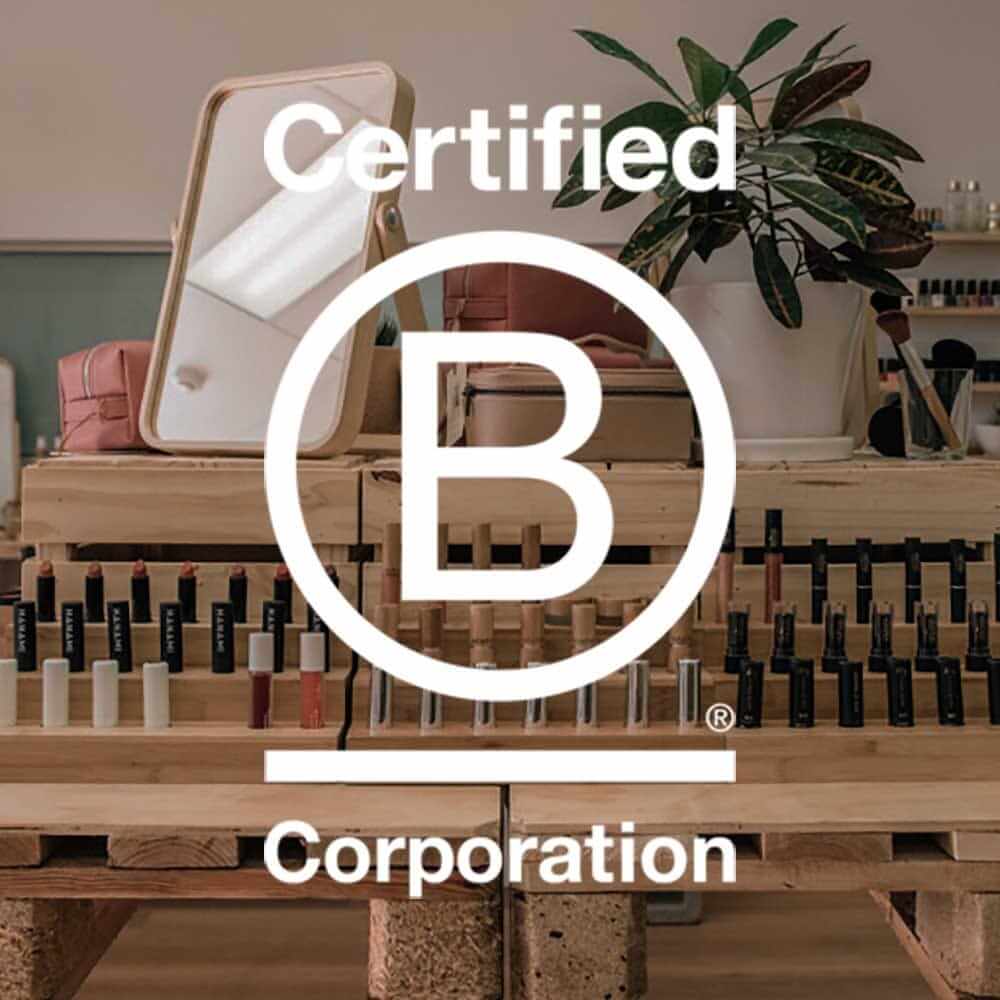In recent times, our lives have been a celebration of characters: whether it is the purple character, thanks to which businesses and workplaces can operate in the shadow of the corona crisis, or the green character, which allows those who have been vaccinated and who have recovered from the virus to gradually return to normal. Of course, notes and certificates were with us long before the corona virus, as everyone who looks for a kosher certificate before entering a restaurant, for example, knows very well.
An innovative standard that is currently gaining momentum around the world is B Corporation (or "B Corp" for short), which is awarded to businesses and organizations with profit goals that are conducted in a socially and environmentally friendly manner. However, even though over 3,900 companies and organizations from 74 different countries received the letter - only four Israeli companies appear on the list. Does this show that Israeli companies are non-environmental, or simply that this issue does not interest them?
The Kabi Corp certification is awarded to companies that meet a long list of standards related to their social and environmental conduct, including the use of renewable energies, monitoring of waste production, integration of women, minorities and the disabled, community involvement, transparency and more. The certification is given by B Lab, a non-profit organization thatEstablished in 2006 for this purpose.
To gain the status of a B Corp, a company must fill out long questionnaires that contain a wide range of specific issues on various aspects of its conduct, and be able to provide proof of the correctness of the answers upon request. Acceptance of the character is conditional bAnnual payment in the amount of one thousand dollars or more (depending on the volume of sales of the business), and the certification must be renewed every three years.
The list of companies that won the award includes, among other things, some well-known names, such as the ice cream company Ben & Jerry's, the online fundraising platform Kickstarter and the travel clothing company Patagonia.
"The Bee Corp mark is awarded out of an aspiration that people will care about the social and environmental aspects of the companies' operations," says Liat Tzvi, an environmental strategy expert. "The symbol also creates visibility towards the consumer, so that the companies enjoy a positive image thanks to the fact that they are doing the right thing."
In Israel, as mentioned, there are only four entities operating that have been certified by Kabi Corp: UBQ, which produces environmentally friendly plastic for industrial use from household waste, company Sky, which provides teams with an organizational learning interface to improve performance, and two funds for impact investments (investments in ventures that aim to create a positive social and/or environmental impact alongside profit): 2B-Community and-Impact First. The New York Digital Insurance Company should also be mentioned in this context Lemonade, which does not operate in Israel but will be founded by Israelis, which is also defined as Kebi Corp.

External seal for environmental conduct
According to the Israeli companies and organizations that won it, there are advantages to the B Corp status. "This certification conveys to customers, investors and stakeholders the message that this is a company that is absolutely committed to sustainability," says Rachel Malka Barr, Vice President of Sustainability Affairs at UBQ. "It gives customers and other parties confirmation that they can trust what we say, because the sustainability aspects of our activity have been carefully examined at the organization level."
"I am sure that we derive benefit from the letter, because it is kosher from an external party: it is given by a completely objective body, which is very tough and tough, which examines the organization according to many parameters and gives it its stamp," adds Shelli Dvir, director of strategy at 2B Friendly from the 2B group.
According to Nina Rauch, director of social impact at Lemonade, the Kabi Corp certification contributes to the company's image in the eyes of consumers from around the world. "I receive a lot of supportive emails from customers on the subject, and I see a lot of comments on social media that the fact that we are B Corp influences the customers' choices and encourages them to choose us," she says. "We can absolutely see from our customers that being a good social company is good for business."
Israel is not a priority
If so, why are there only four organizations and companies in Israel that are defined as Kabi Corp? It is very possible that this is rooted in the significant difficulties faced by a body that wants to receive the letter. "This is a very difficult path," says Dvir. "The B Lab organization is very focused on New York and the US, and they don't have an international department or a qualified Israeli entity to work with. Catching them and getting a response from them involves blood, knowledge and tears - you almost have to force them to serve you."
"The questions that need to be answered in order to receive the letter are formulated in very professional English and their understanding is really not intuitive, especially for non-native English speakers," adds Cecile Balilios, founder and former director of Impact First. "You need help to answer them, you can't do it alone - but there is no one to ask for help."
According to Dvir, the character requirements are also not necessarily adapted to Israel. "Bee Corp checks, for example, things that are taken for granted in Israel, such as maternity leave, which in the US is 'wow', but with us it is by law, or areas such as raw materials, which abroad have many more options than in Israel."
"Israel is not a priority as far as the B Lab organization is concerned, so they did not make any effort to enter the local market and become better known here," says Balilios. "It didn't interest them."
from organization B Lab No response was given to these claims.
According to Dvir, another factor holding back Israeli companies from becoming a B Corp is the question of whether the effort will even be worth it. "I understood from many Israeli companies that I spoke with that they see no value in adopting the symbol - Israeli consumers do not reward otherwise a company that has B Corp, it is not a certificate that makes them direct their consumption to one company and not another," she says. "Most local consumers don't even know what B Corp is."
According to Belilios, in various parts of the world companies choose to become a B Corp in order to receive funding from impact investors who know the character - but not in Israel. "The world of impact investing has not yet been so embraced in Israel, the Israeli companies are not looking to raise money from impact investors, so it is not entirely clear to them why bother and try to become a B Corp," she says.

to create social and environmental consumer power
However, in Belilius's opinion, despite all the difficulties, commercial companies should make the effort and become B Corp. "Impact investments are a wave that is getting stronger today everywhere, more and more investors will demand characters like B Corp, and Israeli companies will slowly discover that they cannot raise money without them," she says. "Israelis must get into the game, you can't keep thinking it won't come to us - it's already coming." According to her, Bee Corp should be treated like ISO standards - a series of accepted international standards for organizations, technologies and products owned by many companies and required in various government tenders. "B Corp is the character that caught, and you should be in the club where everyone is," she says.
However, according to Dvir, for such signs to be successful and for businesses to be conducted in a more sustainable and social manner, it is necessary to raise awareness of the issue among consumers. "If there is a strong consumer force that will demand social and environmental conduct, businesses will adapt themselves", she concludes.
Dvir, for her part, believes that an Israeli-local character should also be created, adapted to the country. "We tried to establish the 2B Friendly symbol (formerly the 'social symbol' - RO), which includes reference to issues such as the environment, sustainability, accessibility, and the like," she says. Another Israeli character, which is active today, is The green urban symbol for businesses which the Municipality of Tel Aviv-Yafo grants to companies and organizations, according to criteria such as reducing waste and saving energy and water.
More of the topic in Hayadan:
- Helping the economy and nature in the fight against the corona epidemic
- The concept of "green growth" will not save the planet, but decision makers fear a world without growth
- Innovative technology based on green energy: Sol-r-led has found a technological solution that will save municipalities and councils up to 80% in monthly electricity consumption
- What is between volcanoes, smart phones and the digital age?
